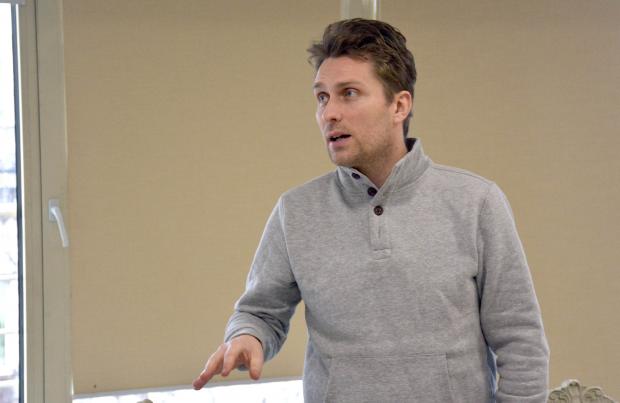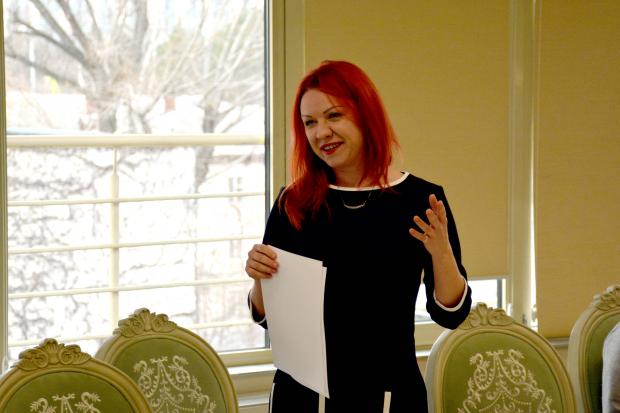Moldova’s minority youth bring diverse perspectives into public affairs
Building on the success of the first Public Administration School in Moldova organized by the office of the OSCE High Commissioner on National Minorities (HCNM) and the Institute for European Policies and Reforms (IPRE) to support the participation of Moldova’s minority youth in public life, a second school was organized from 19 to 24 February 2024. HCNM Intern Sam de Visser met with some of the participants to get their impressions first-hand.
A quiet conference room in the centre of Chisinau suddenly erupts in noise. Twenty-five students are rushing to divide into three separate groups, hastily pushing chairs and tables together. Within moments, the students are pouring over a conflict analysis case study – a real, historical case provided by their trainers, advisors from the office of the OSCE HCNM.
These 25 students are gathered for an intensive week-long course as part of the High Commissioner’s ongoing efforts to support the participation in public life of national minority youth in Moldova. The students represent the full diversity of Moldova, with some of Roma background, some born in Gagauzia, some hailing from Chisinau and some of Bulgarian ancestry.
Pavel Ciaureli is one of them. Born in Gagauzia, he has experienced the difficulties that can come with being a minority. “I appreciate that the school puts special emphasis on supporting national minorities,” he says. He adds that the school can give national minorities “an opportunity in this field, which can be an opportunity for the state as a whole.”
Marianna Prysiazhniuk from Ukraine stressed the importance of the school in bringing national minority youth up to speed with the situation in Moldova. “If you have a passport from another country but live in Moldova then you are part of society. Being an immigrant helps you to understand your place in society and what you can contribute,” she emphasized.
Mohammed Abumani, who is half-Moldovan and half-Palestinian, echoes this sentiment. “One session here taught me more about European integration and state institutions than my university courses,” highlighting his enthusiasm for the hands-on nature of the course.
All three students reflected on Moldova’s changing position within Europe. Pavel, who has studied in Spain, returned to Moldova partly because of the country’s ongoing EU accession negotiations. “I know the problems of my region [Gagauzia] and of the country, and I can also compare them to the EU country that I lived in.”
Marianna started working for a non-governmental organization supporting independent media in Moldova and is looking at a long-term future in the country. “I like Moldova, I like working on Eastern Europe, I like working on conflict mediation,” said the former journalist who had to adapt and change her career after the beginning of the tragic war in the region.
“This programme, and the OSCE, have given me a lot of insight into the political process as a whole; not just the political infighting, but also how structures really work – how there are concrete structures doing concrete things for real people,” Mohammed says.
After the training programme ended, the students had the opportunity to apply for internships in state institutions, such as the parliament, the presidential administration, various government ministries or the Agency of Interethnic Relations. Through these internships, they will be able to translate their ideas on the future positioning of national minorities, as well as the development of Moldova as a European state, into practical work, gaining valuable experience along the way.




